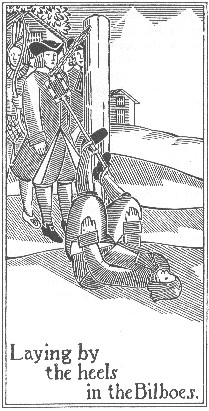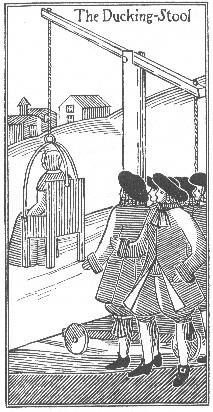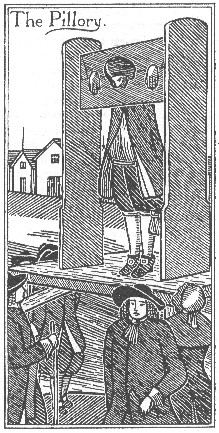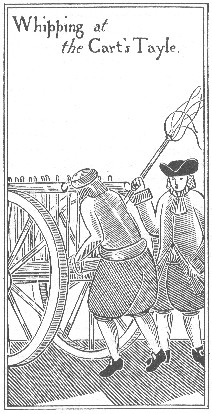





In colonial days punishment was very harsh. Different methods of punishment was the whpping post, the bilboes, the stocks, the pillory, branding and maining. The whipping post was a place where people were badly beaten in public. They were whipped for stealing bread shooting fowl on the Sabbath Day, swearing or leaving a boat "without a pylott." The bilboes were a long heavy bolt, or bar of iron having two sliding shackles, like handcuffs, and a lock. In the shackle were thrust legs of offenders, who were locked in a padlock. This type of punishment was used mostly on a board ship.
The stocks were a frame of timber with holes used to confined the feet or the hands and the feet of offenders. Such offenders were petty theives, unruly servants, wife-beaters, hedge-tearers, vargrants, Sabbath-beakers, revilers, gamblers, dunkards, ballad singers, fortune tellers, traveling musicans and a variety of other offenders. The pillory was fashioned to confide the head in a tight grasp. It was made from wood and iron. This was mainly for embarrassment.
With branding and maining a man could have his ears and or his nostrils
slit off, whipping, gallows, or hanging. They could also have thier tongues
burnt with a hot iron. These are some of punishment of colonial times





